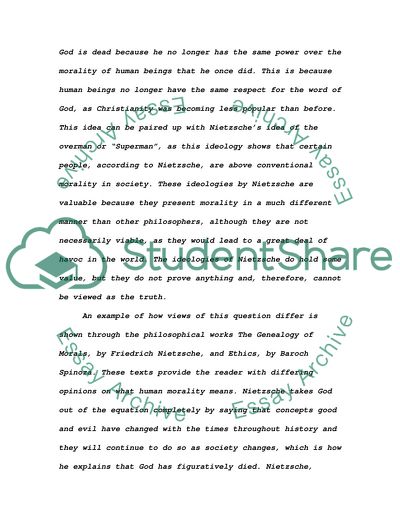Cite this document
(God's existence or rather Death Essay Example | Topics and Well Written Essays - 3500 words, n.d.)
God's existence or rather Death Essay Example | Topics and Well Written Essays - 3500 words. https://studentshare.org/philosophy/1713965-the-death-of-god-and-the-birth-of-the-overman-in-thus-spoke-zarathustra-by-nietzsche
God's existence or rather Death Essay Example | Topics and Well Written Essays - 3500 words. https://studentshare.org/philosophy/1713965-the-death-of-god-and-the-birth-of-the-overman-in-thus-spoke-zarathustra-by-nietzsche
(God'S Existence or Rather Death Essay Example | Topics and Well Written Essays - 3500 Words)
God'S Existence or Rather Death Essay Example | Topics and Well Written Essays - 3500 Words. https://studentshare.org/philosophy/1713965-the-death-of-god-and-the-birth-of-the-overman-in-thus-spoke-zarathustra-by-nietzsche.
God'S Existence or Rather Death Essay Example | Topics and Well Written Essays - 3500 Words. https://studentshare.org/philosophy/1713965-the-death-of-god-and-the-birth-of-the-overman-in-thus-spoke-zarathustra-by-nietzsche.
“God'S Existence or Rather Death Essay Example | Topics and Well Written Essays - 3500 Words”. https://studentshare.org/philosophy/1713965-the-death-of-god-and-the-birth-of-the-overman-in-thus-spoke-zarathustra-by-nietzsche.


